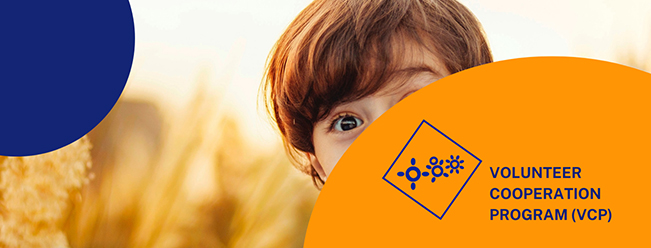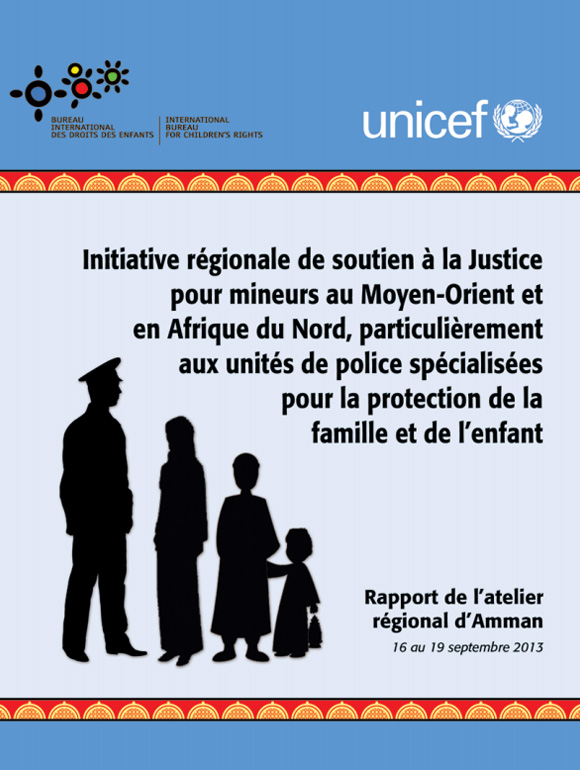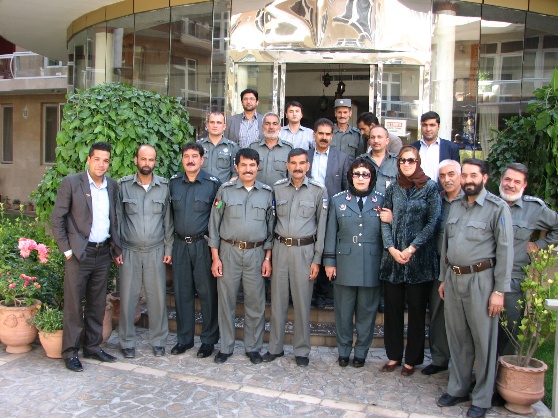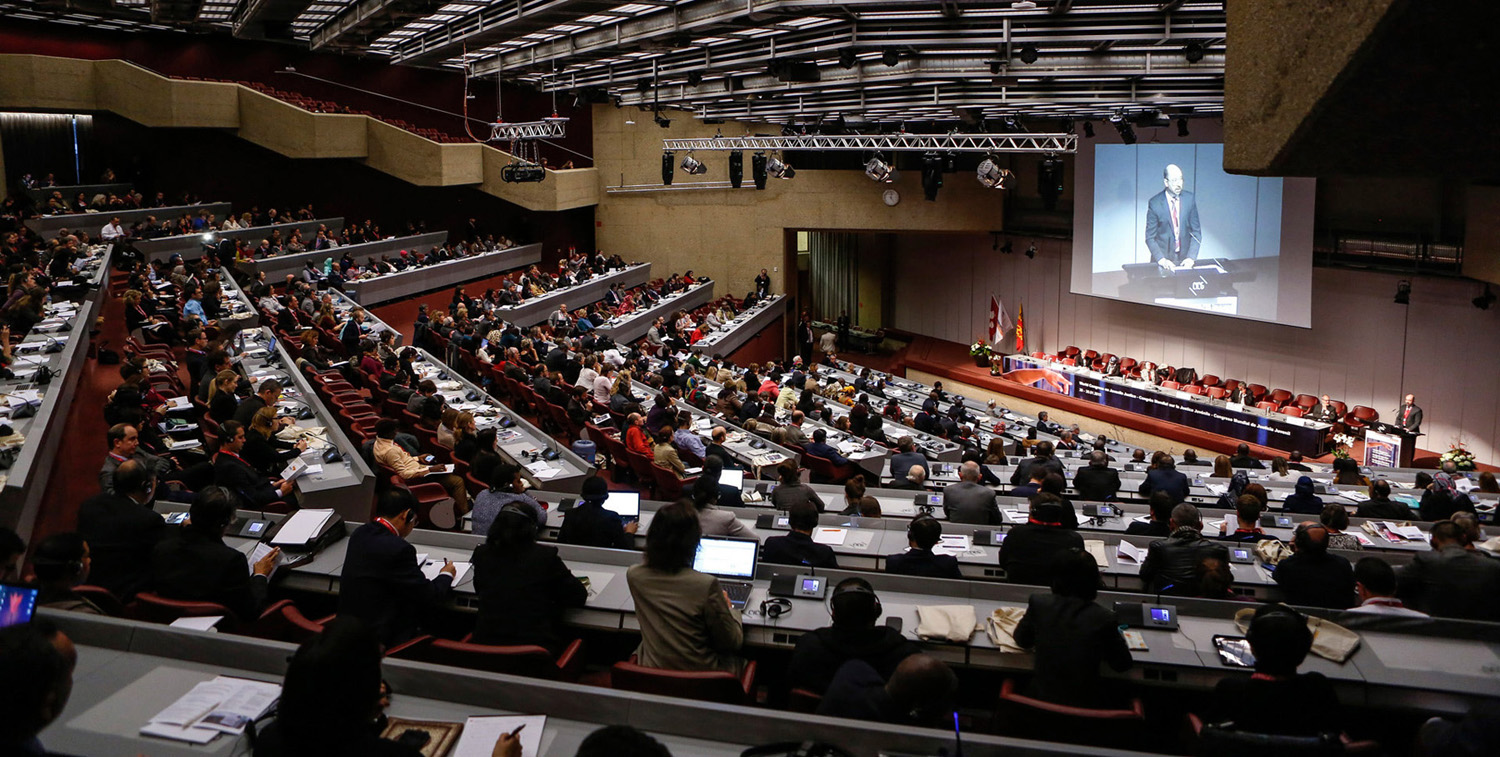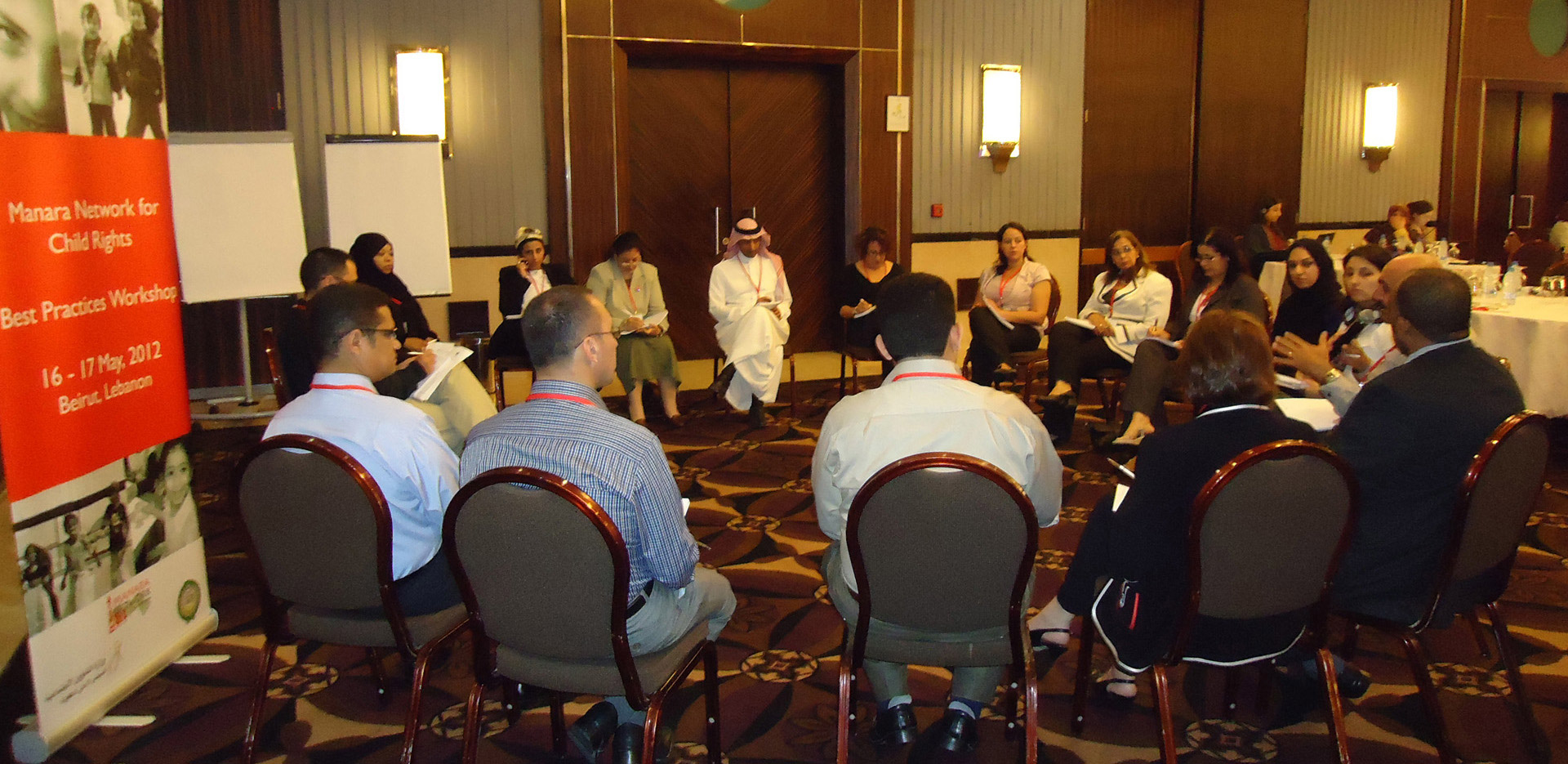Regional support initiative for juvenile justice in the Middle East and North Africa
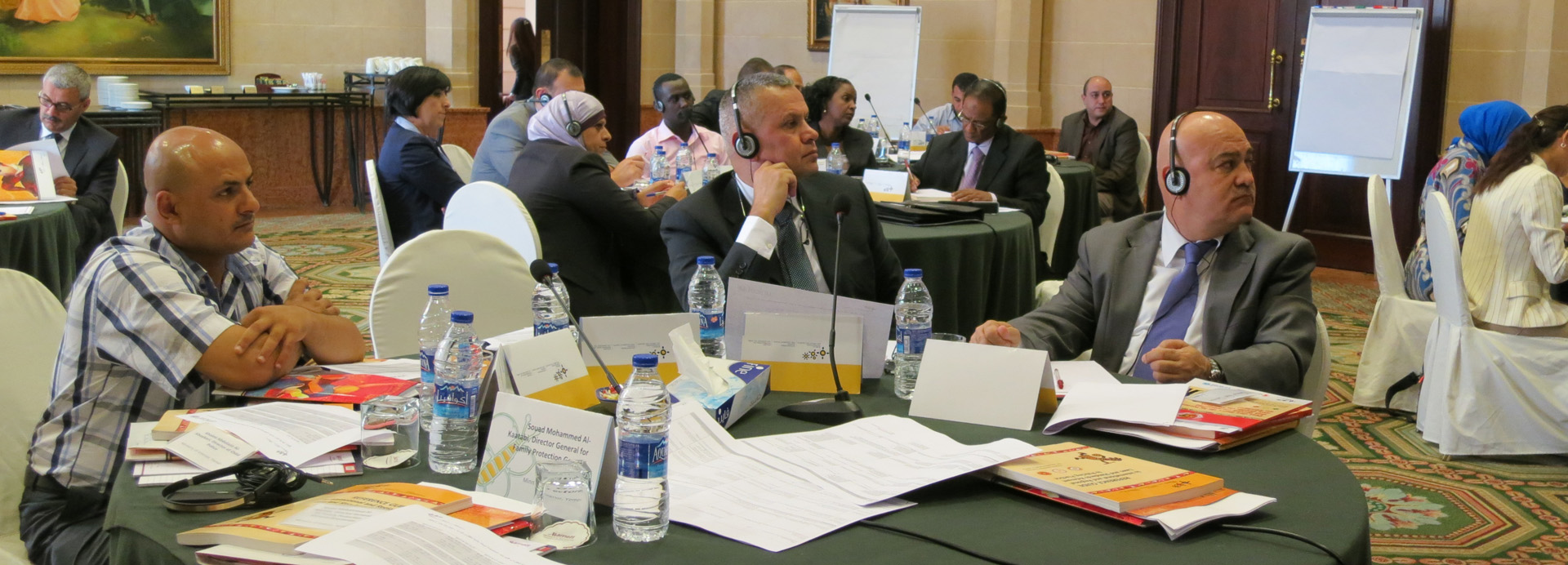
Délégations au travail – Atelier Amman – Septembre 2013
Ensuring better services and increased protection for all children in contact with the law
Workshop duration : 16 au 19 septembre 2013
In 2013, the UNICEF Regional Office for the Middle East launched an extensive consultation with nine countries in the Middle East and North Africa (MENA region) with the aim of evaluating and proposing strategies to improve the juvenile justice system in their areas. These consultations revealed the lack of a long-term vision concerning the critical role played by specialised police units in protecting families and children. Furthermore, all the countries involved (namely Iraq, Jordan, Lebanon, Libya, Morocco, Sudan, the Occupied Palestinian Territories, Tunisia and Yemen) agreed on the need to establish a more strategic partnership between UNICEF and its specialised units, and stressed that a regional analysis of the situation was becoming crucial for moving forward in line with a long-term strategic outlook.
Following this acknowledgement, UNICEF requested the IBCR’s expertise in May 2013 to carry out a study on the specialised police units in the different countries in the MENA region involved in the project, the objective being to initiate new collaborations with those units. First, a literature review was prepared to document the state of juvenile justice systems in those areas; a questionnaire was then sent to each participating country to collect comparable data to better understand the specifics of each context.
The brainstorming workshop held in Amman, Jordan from 16 to 19 September, 2013 is part of this initiative. Over the course of four days of talks, some 23 delegates from those nine countries in the MENA region came to discuss juvenile justice, particularly in the context of family and child protection units, in order to conduct a strategic analysis of the role of those units and the work they have accomplished. By combining the results of the literature review, the discussions held over the course of the workshops, and the data collected in the questionnaires, the report not only clarified the problems related to juvenile justice and the modes of collaboration with specialised units in the region, but also served as a reference point for participating countries and their strategies. This report was thus able to present the main trends in juvenile justice systems in the MENA region by highlighting the similarities, the obstacles and the solutions for offering better juvenile justice
- Intervention locations : Amman
- Project duration: 16 au 19 septembre 2013
- Partners :
- UNICEF
- Highlights:
- 23 delegates
- 9 countries in the Middle East and North Africa region took part in the workshop (Iraq, Jordan, Lebanon, Libya, Morocco, Sudan, Occupied Palestinian Territories, Tunisia, Yemen)
- 70 analysis criteria were documented for each of the nine participating countries and included in the Amman report, in French and English
- 3 case studies (Iraq, Jordan and Yemen) in which 70 other specific criteria were documented to highlight the recent hands-on experiences in those countries in the juvenile justice sector
- Fields of activity and expertise :
- Applied research
- Advocacy and institutional support
- Children and the justice system




